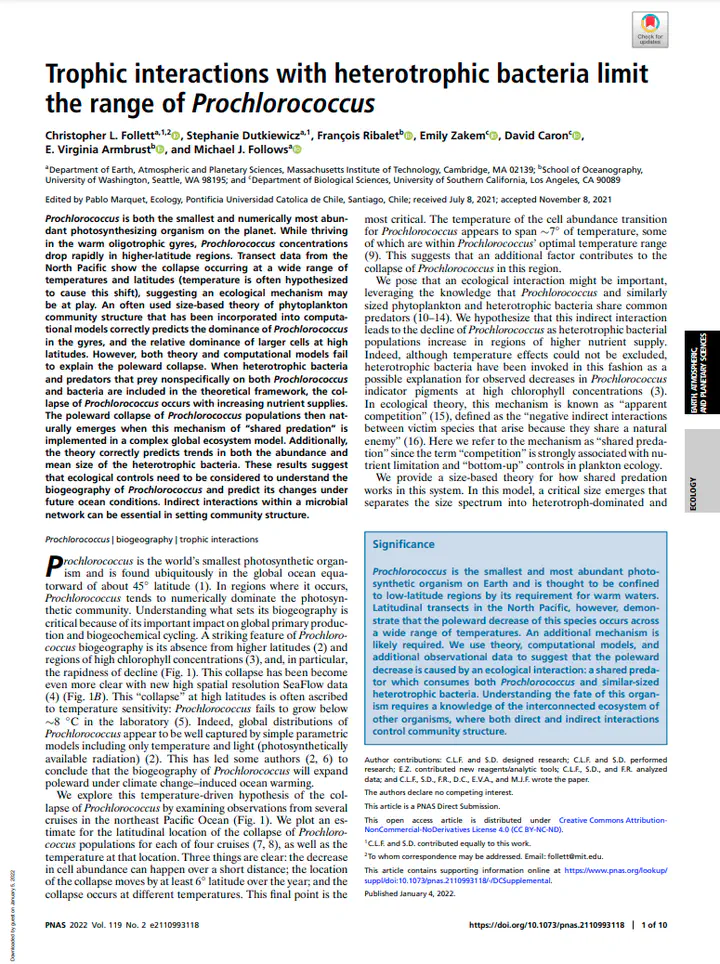
Abstract
Prochlorococcus is the smallest and most abundant photosynthetic organism on Earth and is thought to be confined to low-latitude regions by its requirement for warm waters. Latitudinal transects in the North Pacific, however, demonstrate that the poleward decrease of this species occurs across a wide range of temperatures. An additional mechanism is likely required. We use theory, computational models, and additional observational data to suggest that the poleward decrease is caused by an ecological interaction: a shared predator which consumes both Prochlorococcus and similar-sized heterotrophic bacteria. Understanding the fate of this organism requires a knowledge of the interconnected ecosystem of other organisms, where both direct and indirect interactions control community structure.